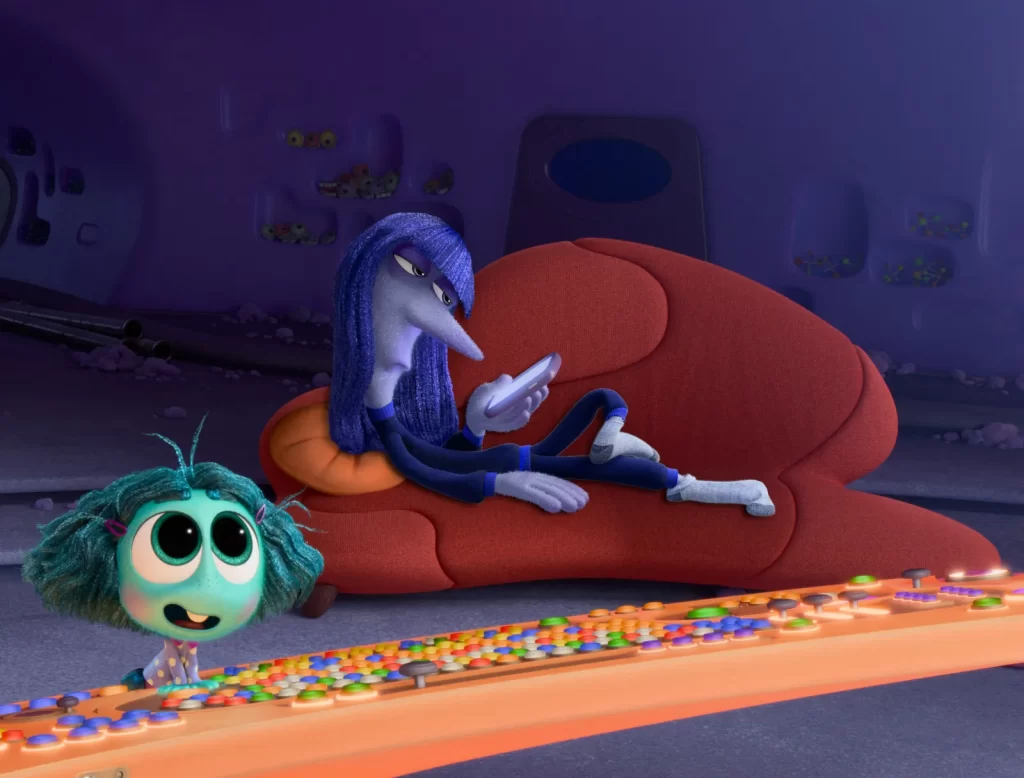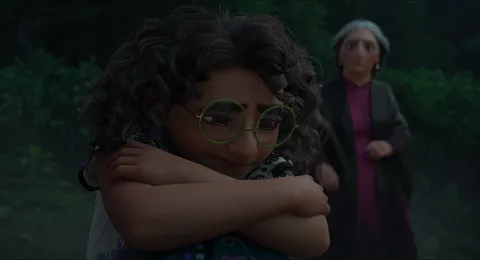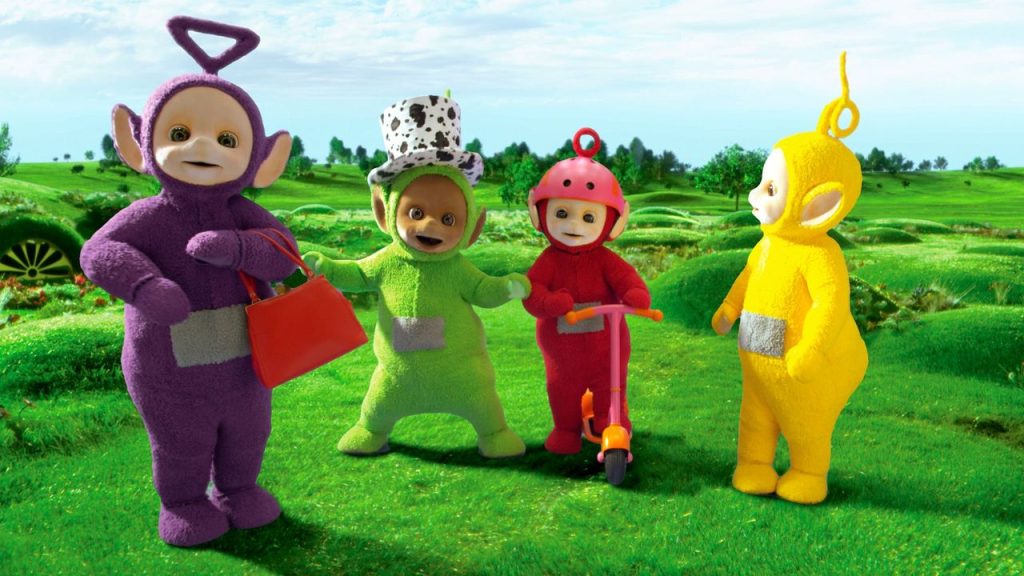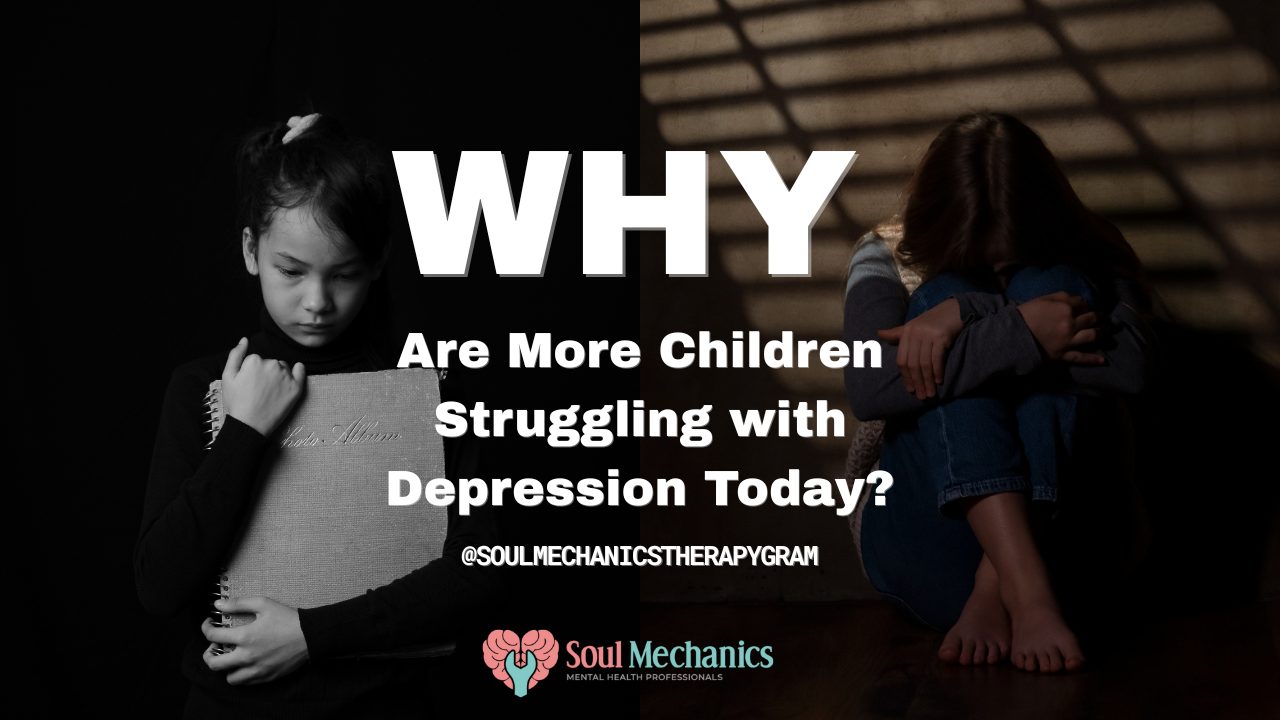Childhood Depression: Why Are More Children Struggling with Depression?
Childhood Depression: Why Are More Children Struggling with Depression?

Written By: Thiviyah Ravichandran, Clinical Psychologist (MAHPC(CP)00620)

Not long ago, childhood was often described as a carefree chapter of life - a time for play, curiosity, and imagination. But in recent years, more and more children seem weighed down by something heavier: sadness, anxiety, and a quiet sense of hopelessness that doesn’t seem to fade. Many parents and teachers are left wondering, “What’s happening to our children”?
Could it be "Childhood Depression"?
The truth is, childhood depression isn’t just a “phase.” It’s a growing concern that reflects how much childhood itself has changed.
Reminder: If you or your loved ones are struggling with mental health issues, please don't hesitate to reach out to us at Soul Mechanics KD or Soul Mechanics Ipoh. Remember, seeking help is not a sign of weakness but strength!
1. The Pressure Starts Earlier Than Ever
Children today grow up in a world that rarely slows down. They are expected to perform, achieve, and adapt. Sometimes, before they even understand what those words mean. School demands start young, competition feels endless, and even playtime can turn into another structured task.

At the same time, they’re constantly surrounded by images of what “success” or “happiness” should look like. When children start comparing themselves to those ideals-whether in school, sports, or online - it’s easy for them to feel like they’re never quite enough.
2. The Digital World Has Changed Childhood

Technology brings convenience, but it also brings invisible weight. Many children spend hours scrolling through feeds that show perfect lives, perfect bodies, and perfect friendships, which are all filtered and curated. It’s no surprise that real life can start to feel dull or disappointing by comparison.
And while screens connect children to the world, they also quietly disconnect them from the people right beside them. Conversations, playtime, and family moments are often replaced by scrolling and silent rooms filled with blue light. Over time, this disconnect chips away at emotional closeness, which is one of the strongest protections against depression.
Reminder: If you or your loved ones are struggling with mental health issues, please don't hesitate to reach out to us at Soul Mechanics KD or Soul Mechanics Ipoh. Remember, seeking help is not a sign of weakness but strength!
3. Emotional Awareness, But Less Emotional Support
We talk about mental health more openly at present, which is progress. But talking alone isn’t enough. Many children can name what “depression” means, yet still don’t have a safe space to share their own pain. Parents are busier, families are stretched thin, and genuine listening often competes with the constant buzz of notifications and deadlines.

What children need most—presence, patience, and understanding —can be the hardest things to give in a fast-paced world. When those emotional needs go unmet, sadness and self-doubt can quietly grow into something deeper.
4. The World Feels Heavier

Children today are not blind to what’s happening around them. They overhear the news, notice family stress, and feel the global tension that fills conversations. Issues like climate change, economic struggles, and uncertainty about the future trickle down into their young minds.
When children sense that the adults around them are anxious or overwhelmed, they often absorb those emotions even if they don’t fully understand them. Their world feels less predictable, and that sense of safety they once had begins to erode.
Reminder: If you or your loved ones are struggling with mental health issues, please don't hesitate to reach out to us at Soul Mechanics KD or Soul Mechanics Ipoh. Remember, seeking help is not a sign of weakness but strength!
5. The Disappearing Pause
Childhood used to include moments of boredom, daydreaming, and quiet play. Those pauses gave children time to process emotions and rest their minds. Now, every spare moment can be filled with stimulation- a video, a message, a game, a class.

Without space to breathe, children’s emotional systems never fully reset. Over time, constant stimulation can leave them restless, irritable, or emotionally drained.
6. Rebuilding a Softer Childhood
The rise in childhood depression is not a sign of weakness in this generation. It’s a sign that the world around them has changed faster than their hearts can keep up. To help them, we don’t need grand solutions but gentler ones.

Slow the pace. Let children rest, explore, and be imperfect without fear of falling behind.
Listen with full attention. Put down the phone, make eye contact, and show them they matter more than any screen.
Encourage real play. Laughter, imagination, and movement are powerful medicine.
Model calmness. Children learn emotional balance from the adults around them. If we slow down, they feel safer doing the same.
When we see more children struggling with childhood depression, it’s not just their burden. It’s society’s reflection. The solution begins with small, intentional acts: a slower conversation, a genuine hug, a moment without pressure.
Children don’t need a perfect world. They just need a world that pauses long enough to notice them and to remind them that they are already enough.
If you’re looking for a therapist in Kota Damansara or Ipoh area, you can click here for more information.
If you enjoyed reading this, why not broaden your knowledge by learning about "High-Functioning Depression Signs: When Success Feels Empty"? You can read the blog here.
For more content related to mental health, follow us on our official Instagram.

